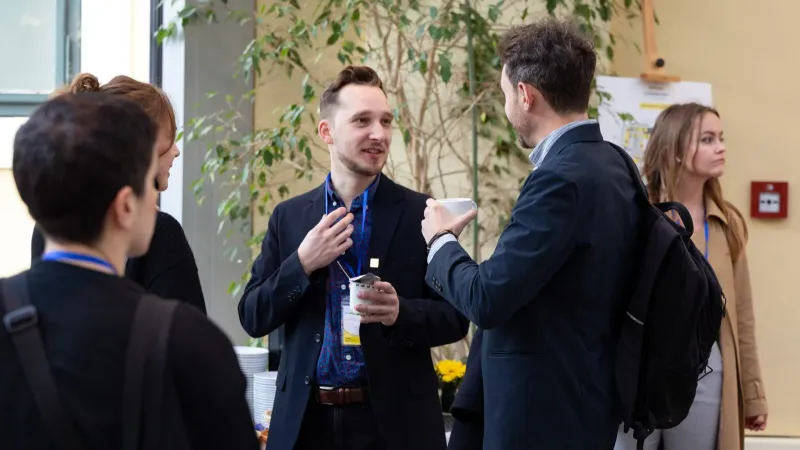
Uniunea Europeană susține dreptul fiecărui copil la o familie
În ultimii ani, s-a conturat tot mai mult importanța îngrijirii și suportului de calitate a serviciilor pentru copiii aflați în instituții rezidențiale sau cei expuși riscului de a fi separați de familiile lor. Astfel, crește necesitatea sporirii numărului de asistenți parentali profesioniști și părinți-educatori pentru a oferi o alternativă adecvată pentru acești copii.
Asistența Parentală Profesionistă și Casa de Copii de Tip Familie sunt considerate forme imediate de protecție care facilitează procesul de dezinstituționalizare pentru copiii plasați. Autoritățile au responsabilitatea de a identifica forme de protecție familială (APP/CCTF) pentru toți copiii care nu pot fi reintegrați în familiile lor de origine, prin extinderea și diversificarea numărului de unități APP/CCTF în raioanele ce au copii plasați în servicii rezidențiale, asigurând în același timp finanțarea necesară. La finele anului 2022, conform datelor oficiale, 633 de copii se aflau în plasamente rezidențiale, dintre care 110 copii aveau dizabilități și erau plasați de autoritatea tutelară. Procesul de dezinstituționalizare implică atât dezvoltarea unui cadru legal coerent, cât și diversificarea și dezvoltarea serviciilor sociale în funcție de nevoile individuale ale copiilor, inclusiv celor cu dizabilități, și consolidarea capacităților specialiștilor.
Cu sprijinul CCF Moldova, în cadrul Proiectului HOPE – Abordarea holistică a protecției copilului în Moldova, finanțat de Uniunea Europeană, Agenția Austriacă de Dezvoltare și Caritas Austria, nouă asistenți parentali din Cimișlia, Anenii Noi, Strășeni, Nisporeni și municipiul Chișinău au participat în luna mai la un curs de instruire inițială pentru a deveni potențiali asistenți parentali profesioniști, curs cu o durată de 50 de ore.
Una dintre participante, cu o experiență în îngrijire a patru copii biologici, a împărtășit: „La început am fost ezitantă să particip, mă gândeam că am deja multe cunoștințe, având în vedere că am crescut deja patru copii. Dar nu regret, pentru că am învățat multe detalii despre formele de abuz și cum să intervenim atunci când comportamentul copilului este diferit” (potențială asistentă parentală profesionistă).
O altă participantă a menționat: „Acest curs mi-a crescut și mai mult încrederea în mine, deoarece voi avea grijă de un copil cu nevoi speciale. Știu că orice situație neclară voi întâmpina, voi fi ghidat și ajutat în măsura posibilităților. Vă suntem profund recunoscători!” (asistent parental potențial, femeie).
Acești oameni își vor deschide ulterior casa și inima pentru copiii care au mare nevoie de ei. Cu toate acestea, este necesar suportul continuu din partea specialiștilor, din momentul când vor fi plasați copiii.
Un asistent parental profesionist a fost invitat să își împărtășească experiența sa de îngrijire a mai multor copii, care a încurajat participanții să nu le fie frică de starea copiilor care vin, că ei suferă de lipsa de dragoste: „Am avut ocazia să am grijă de un bebeluș de numai 5 luni. În primele două săptămâni, părea că este foarte rigid, stând într-o singură poziție – pe spate, cu mâinile în sus. M-am îngrijorat și am început să-l stimulez, să-I vorbim, să-i schimb poziția, să-l masez, pentru a-l scoate din acea stare. Treptat, micuțul s-a înviorat și a devenit un copil vesel, la fel ca orice alt bebeluș de vârsta lui…”
Este prioritar ca autoritățile să promoveze serviciile de îngrijire alternativă de tip familial pentru a asigura dreptul fiecărui copil la o familie și pentru a preveni instituționalizarea acestora, oferind o alternativă mai bună la plasamentul în instituții rezidențiale, iar suportul continuu și ghidarea acestora în situațiile copiilor ce au venit cu diverse experiențe traumatice este unul crucial. Aceste servicii oferă oportunitatea de a crește într-un mediu familial sigur și stabil, implicând familiile biologice, extinse sau asistenții parentali profesioniști în îngrijirea copiilor.
Analizând tendințele de dezvoltare și evoluția numărului de asistenți parentali și a copiilor plasați în servicii alternative de tip familial, în ultimii ani, observăm o creștere a numărului de asistenți parentali profesioniști și copii plasați în servicii alternative de tip familial, ceea ce este un semn încurajator. Cu toate acestea, este necesară o creștere continuă și sustenabilă a numărului de asistenți parentali și părinți-educatori pentru a satisface nevoile tuturor copiilor aflați în instituții rezidențiale sau în risc de separare.
Autoritățile ar trebui să consolideze politicile și programe de recrutare, formare și susținere a asistenților parentali profesioniști și părinților-educatori, pentru a încuraja mai multe persoane să se implice în acest domeniu.


